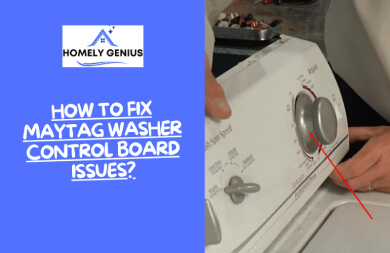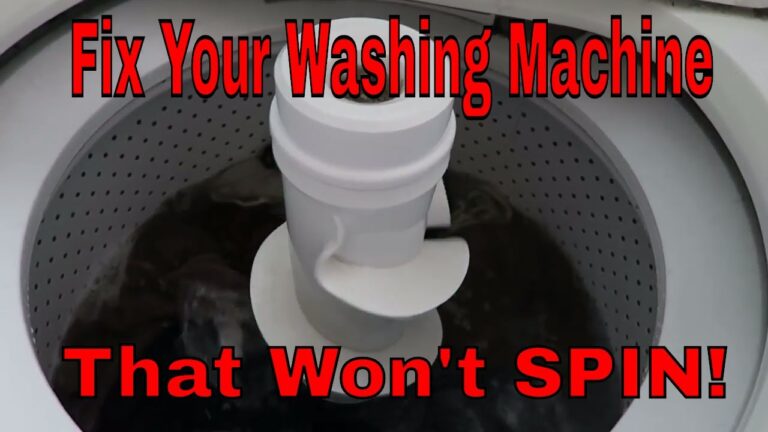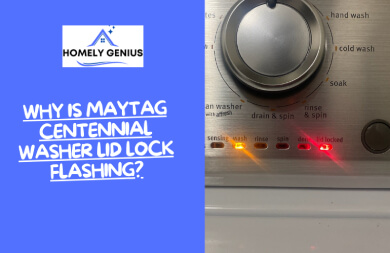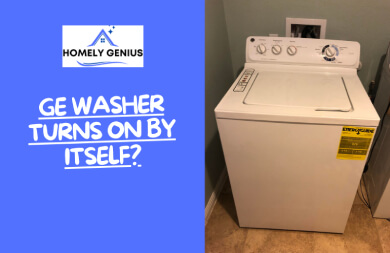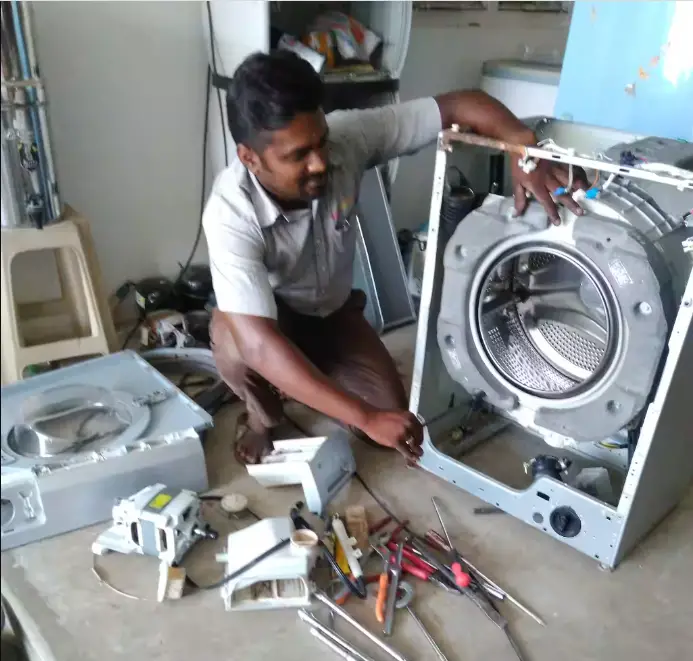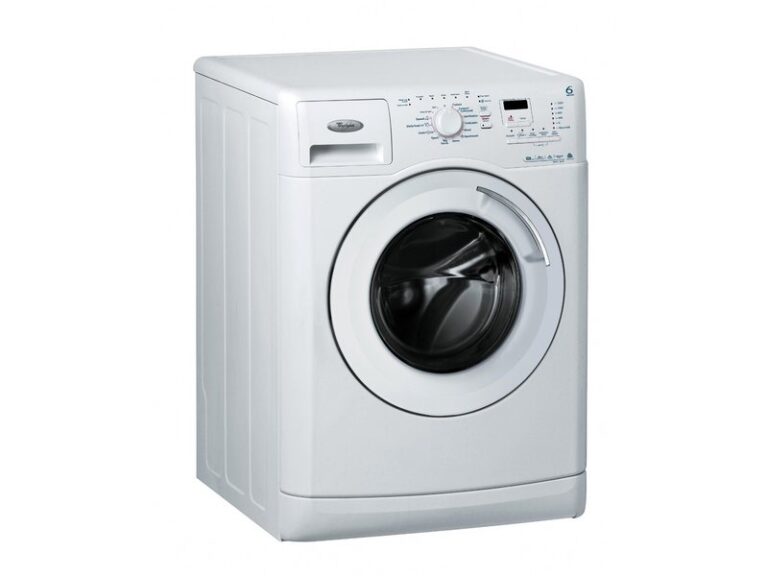Appliance Washing Machine Repair: Expert Tips to Fix Common Issues
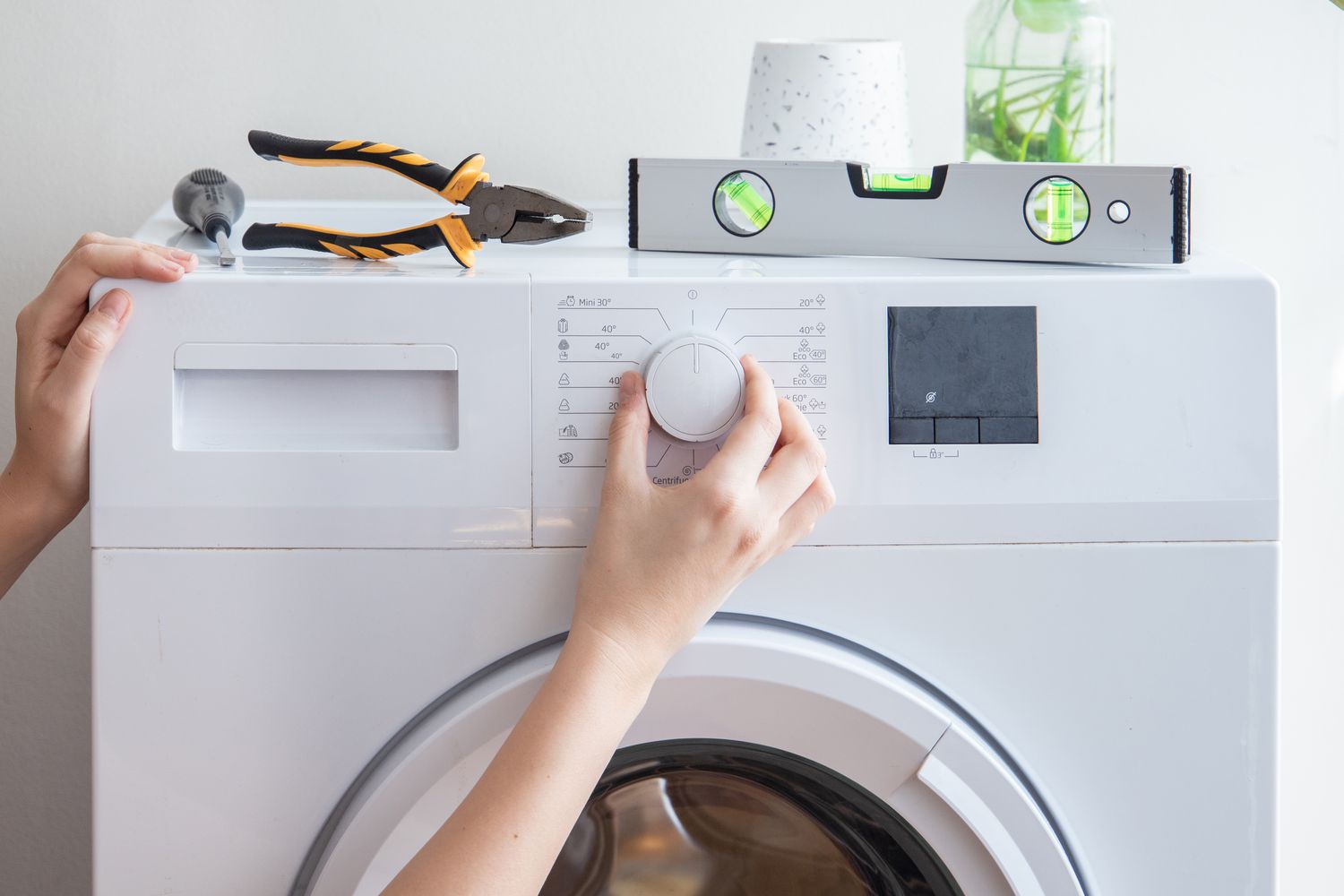
For washing machine repair, first diagnose the problem and determine if you need professional help. Common issues include leaks, noise, and failure to start.
A well-functioning washing machine is essential for any household. Regular maintenance can prevent most problems, but issues like leaks, unusual noises, or a machine that won’t start are common. Diagnosing these problems early can save money and time. Sometimes, simple fixes like checking hoses or cleaning filters resolve the issue.
For more complex problems, professional repair services are recommended. Knowing the basics of washing machine repair helps in making informed decisions. Keeping your machine in good condition ensures its longevity and efficiency, providing you with clean clothes without interruptions.
Tools And Safety
Repairing a washing machine can save money and extend its life. Having the right tools and knowing safety precautions is crucial. This section covers essential tools and safety measures.
Essential Tools
Having the right tools makes repair tasks easier and safer. Here are some must-have tools for washing machine repair:
- Screwdrivers: Both flathead and Phillips screwdrivers are essential.
- Wrench Set: Adjustable wrenches for various bolt sizes.
- Pliers: Needle-nose pliers for gripping and bending wires.
- Multimeter: For checking electrical components.
- Socket Set: Useful for removing larger bolts.
Safety Precautions
Safety should always come first during repairs. Follow these guidelines to stay safe:
- Unplug the Machine: Always disconnect from power before starting repairs.
- Wear Gloves: Protect your hands from sharp edges and chemicals.
- Use Goggles: Shield your eyes from debris.
- Check for Water Leaks: Ensure there are no leaks before working.
- Keep Kids Away: Ensure children are not in the working area.
Repairing a washing machine requires the right tools and strict safety measures. Being prepared ensures a successful and safe repair job.

Credit: in.pinterest.com
Diagnosing Problems
Diagnosing problems in your washing machine can save you time and money. Understanding the issues helps in quick repair. This section will guide you through identifying symptoms and troubleshooting steps.
Identifying Symptoms
Symptoms are the first sign of trouble in your washing machine. Look for these common symptoms:
- Strange Noises: Banging, clicking, or grinding sounds.
- Water Leaks: Puddles around the machine.
- Not Spinning: Clothes remain wet after the cycle.
- Not Draining: Water stays in the drum.
- Bad Smells: Musty or moldy odors.
Troubleshooting Steps
Troubleshooting helps find the root cause of the problem. Follow these steps to troubleshoot your washing machine:
- Check the Power: Ensure the machine is plugged in.
- Inspect Hoses: Look for kinks or blockages.
- Examine the Drum: Check for foreign objects.
- Test the Door Seal: Ensure it is clean and intact.
- Review Error Codes: Consult the user manual for guidance.
If these steps don’t fix the issue, professional help might be needed. Regular maintenance can prevent many common problems.
Fixing Drainage Issues
Washing machines often face drainage issues. These problems can disrupt daily chores. Fixing them quickly is crucial. Let’s explore common causes and solutions.
Clogged Drains
Clogged drains are a frequent issue. They block water flow. Here’s how to address them:
- Turn off the washing machine.
- Locate the drain hose and detach it.
- Check for visible obstructions.
- Use a plumber’s snake to clear deep clogs.
- Reattach the hose securely.
Regularly inspect and clean the drain filter. This prevents debris buildup.
Pump Problems
The pump plays a crucial role. It moves water out of the machine. Pump issues can halt this process. Here’s how to troubleshoot:
- Unplug the washing machine for safety.
- Access the pump by removing the back panel.
- Check for blockages in the pump.
- Remove any debris found.
- Examine the pump for damage. Replace if necessary.
Ensuring the pump is clear and functional is key. Regular maintenance helps avoid pump issues.
| Problem | Solution |
|---|---|
| Clogged Drains | Clear obstructions, clean filter. |
| Pump Problems | Check for blockages, replace if damaged. |
Addressing these issues promptly keeps your washing machine running smoothly. Regular checks can prevent major repairs.
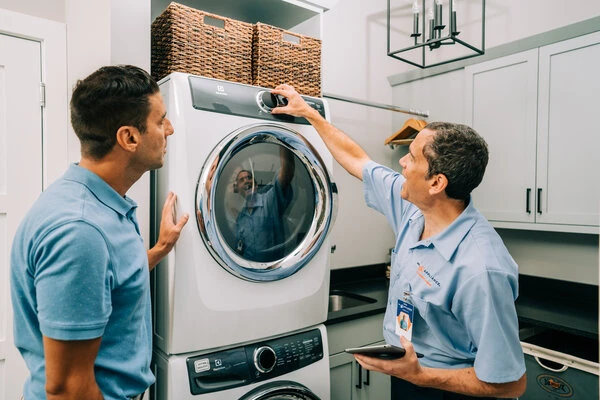
Credit: www.mrappliance.com
Addressing Spin Cycle Problems
Experiencing issues with your washing machine’s spin cycle? You’re not alone. This common problem can stem from various factors. Let’s explore how to identify and resolve these issues.
Unbalanced Loads
An unbalanced load can prevent your washing machine from spinning properly. Ensure clothes are evenly distributed inside the drum.
- Check if the load is too heavy.
- Rearrange clothes for balance.
- Remove some items if necessary.
Using the correct load size is crucial. Overloading or underloading can affect the spin cycle.
Motor Malfunctions
Motor malfunctions can also cause spin cycle problems. The motor is vital for spinning the drum. If it fails, the drum won’t spin.
- Listen for unusual noises.
- Check for burning smells.
- Inspect the motor for visible damage.
If you detect these signs, the motor may need repair or replacement.
Solving Water Leakage
Water leakage in washing machines is a common issue many homeowners face. Identifying the source of the leak is the first step to solving the problem. Below, we will explore some solutions to fix water leakage.
Hose Inspections
Start by checking the hoses. These include the inlet and drain hoses. Inspect for any signs of wear, cracks, or loose connections. A damaged hose can cause significant water leakage.
- Inlet Hoses: Ensure they are tightly connected to the water supply.
- Drain Hoses: Check for kinks or blockages that may obstruct water flow.
Replacing worn-out hoses can prevent further leaks. Always use high-quality hoses for durability.
Seal Replacements
Another common cause of water leakage is faulty seals. Washing machine seals, especially door seals, can wear out over time. Inspect the door seal for any tears or gaps.
- Door Seal: Carefully examine the rubber seal around the door.
- Tub Seal: Check the seal located between the outer tub and the transmission.
If you find any damage, replace the seals immediately. Properly functioning seals are crucial to prevent water from escaping.
By performing regular maintenance checks, you can extend the life of your washing machine. Addressing issues like water leakage promptly ensures your appliance runs efficiently.
Handling Electrical Faults
Washing machines are essential household appliances. They simplify our lives. But what happens when they stop working? Understanding how to handle electrical faults can save time and money. Here, we’ll focus on two critical areas: Checking Power Supply and Inspecting Wiring.
Checking Power Supply
The first step in handling electrical faults is checking the power supply. Ensure the washing machine is plugged in. Verify that the outlet is working. You can use a tester or plug in another device. If the outlet is faulty, it needs fixing. Also, check the circuit breaker. Sometimes, a tripped breaker can be the issue. Reset it if necessary.
Inspecting Wiring
Next, inspect the wiring of the washing machine. Unplug the appliance before doing this. Look for any visible damage. Damaged wires can cause electrical faults. Use a multimeter to check for continuity. Follow the manufacturer’s guidelines for safe testing. If you find damaged wires, replace them. Ensure all connections are secure.
Here’s a quick checklist to guide you:
- Ensure the washing machine is plugged in.
- Verify that the outlet is functional.
- Check the circuit breaker.
- Inspect the wiring for damage.
- Use a multimeter for continuity testing.
- Replace any damaged wires.
- Secure all wire connections.
By following these steps, you can handle electrical faults efficiently. This ensures your washing machine works properly.
Maintaining Your Washing Machine
Maintaining your washing machine is crucial for its long life. A well-maintained machine saves you money and time. Simple steps can keep your appliance in top shape.
Regular Cleaning
Regular cleaning prevents dirt buildup inside the machine. Clean the detergent drawer once a month. This stops soap residue from clogging it.
Wipe the drum and door seal after each use. This stops mold and mildew. Run a hot water cycle with vinegar monthly. This removes any lingering smells.
| Task | Frequency |
|---|---|
| Clean Detergent Drawer | Monthly |
| Wipe Drum and Seal | After Each Use |
| Run Vinegar Cycle | Monthly |
Preventive Measures
Preventive measures can avoid costly repairs. Check the hoses for leaks or cracks. Replace them every five years.
Balance the washing machine on a level surface. This reduces wear and tear. Avoid overloading the drum. Too much weight strains the motor.
- Check hoses for leaks
- Replace hoses every five years
- Balance machine on a level surface
- Avoid overloading the drum
Use the right amount of detergent. Too much soap damages the machine. Follow the manufacturer’s instructions for best results.
- Use the right amount of detergent
- Follow manufacturer instructions
By following these steps, your washing machine will run smoothly. It will also last longer, saving you money and stress.

Credit: www.swappliancerepair.com
When To Call A Professional
Washing machines are vital appliances in our homes. Sometimes, they break down. Knowing when to call a professional is essential. Fixing some problems yourself can be risky. Let’s explore key reasons to call a professional.
Complex Repairs
Some repairs are too complex for DIY. Electrical issues can be dangerous. Motor problems require special tools. Water leaks inside the machine need expert handling. Attempting these repairs without skills can worsen the problem. Professionals have the right training and tools. They can quickly identify and fix issues safely.
Warranty Considerations
Warranties protect your appliance. Trying to fix the machine yourself can void the warranty. Manufacturers prefer professionals to handle repairs. This ensures the machine is fixed correctly. Always check your warranty terms before any repair. Call a professional to keep your warranty valid.
Frequently Asked Questions
Is It Worth Repairing A Washing Machine?
Repairing a washing machine is worth it if the cost is less than half of a new one. Consider the machine’s age and repair frequency. Consult a professional for an accurate estimate.
Is It Cost-Effective To Fix A Washing Machine?
Yes, fixing a washing machine can be cost-effective. Consider repair costs, age, and condition of the machine. If repair costs are low and the machine is relatively new, fixing it is usually a wise choice.
How Long Should Washing Machines Last?
Washing machines typically last 10 to 15 years. Regular maintenance can extend their lifespan. Choose reliable brands for durability.
Can You Repair A Washing Machine Yourself?
Yes, you can repair a washing machine yourself. Follow the manual for basic troubleshooting steps. Ensure safety by unplugging the machine. For complex issues, consult a professional.
How To Identify Washing Machine Issues?
Check for unusual noises, leaks, or error codes. These signs often indicate a problem needing repair.
Why Is My Washing Machine Not Spinning?
A broken belt, motor issues, or lid switch problems can prevent spinning. Professional diagnosis is recommended.
How Often Should I Service My Washing Machine?
Service your washing machine annually to maintain optimal performance and extend its lifespan.
What Causes Washing Machine Leaks?
Leaks may result from faulty hoses, door seals, or a damaged tub. Inspect and replace faulty components.
Conclusion
Regular maintenance ensures your washing machine runs smoothly for years. Address issues promptly to avoid costly repairs. Trust professional repair services for complex problems. Proper care extends the life of your appliance. Keep your washing machine in top condition, and enjoy hassle-free laundry days.

